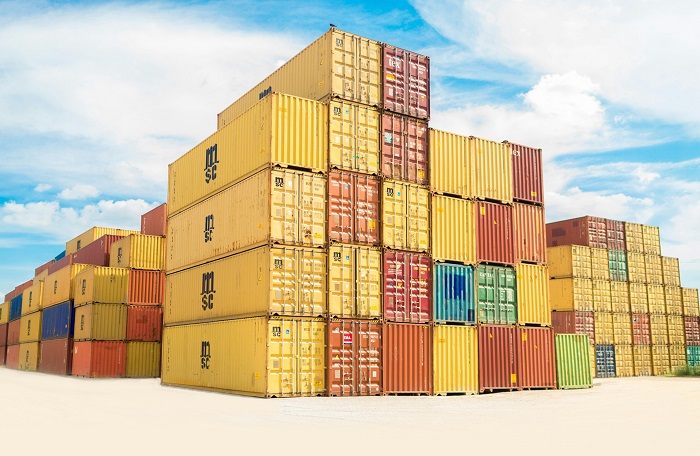Over the past couple of years, online shopping has gradually replaced brick-and-mortar stores as a favourite among customers. The ease and efficiency it provides, as well as the access to a wider range of products, have won many people over. However, businesses have also had to devise new strategies and adapt to the demands. To keep things running smoothly and avoid losses, it’s essential to ensure cost-effective fulfilment practices that deliver fast shipping times and maintain customer satisfaction.
More and more Scottish enterprises are opening up to international markets, seeing the strategy as an essential aspect of their overall export plan. But understanding fulfilment is more complicated than it would seem at first glance, as it is the cornerstone of order delivery and can, therefore, be quite complex and multi-layered.
Key components
E-commerce fulfilment is the part of the supply chain that receives goods in bulk at the warehouse, packs the orders and delivers the products your customers ordered. It includes many different processes, including getting the goods to the centre shelves, putting the stock-keeping units into the inventory, ensuring deliveries and managing returns. When all these processes are in order, and you can provide a seamless experience to each and every single one of your customers, your business reputation will get a boost.
That’s because you’ll make a name for yourself as a company that doesn’t deliver the wrong goods and ensures speedy processing and arrivals. Customers don’t want to wait for days to receive a package, and delays are especially troublesome for most. Delivery delays, particularly those occurring in the case of international shipping, lost packages, localisation and the security of the products are the main concerns customers have. Joining forces with a company like Monta means having a reliable partner that can handle your ecommerce fulfilment in a professional way.
It can be tough to find the time and resources it takes to make your fulfilment perfectly seamless, which is why entrusting it to another company can be the solution.
Reducing costs
Although e-commerce is becoming increasingly more important among members of the general public, that doesn’t mean that the sector has already solved all its possible issues. For Scottish enterprises, the main challenges are the competition from international businesses that fit the same niche, as well as the standard logistics problems. Navigating the post-Brexit landscape has also been confusing for many owners, and companies had to learn to adapt and become more resilient.
Better logistics can be used to improve efficiency and, therefore, costs as well. The simplest way to measure if your systems perform well is to determine how effectively you move products from point A to point B. Analysing the entire process can help you better understand the areas you need to change or improve to speed things up. Your strategy could include anything from expanding the use of automation, maximising quality control procedures and ensuring operations are more streamlined.
To reduce overall fulfilment costs, consider making packages smaller, avoiding overpackaging, reducing pallet storage, and fulfilling orders closer to the customer. Each business is different, so your chosen strategy must be customised to fit your needs.
Optimisation of Inventory
An online business that works well knows that optimising all of its processes is the way to go. A fulfilment centre will provide you with valuable advice on what you need to do to streamline warehousing, like eliminating the unnecessary steps to improve the flow of goods, minimise labour costs, reduce energy usage and adopt and integrate new technology into your processes. Keeping a good inventory is also crucial so you know exactly what you need and don’t.
Running an audit of your stock is the first and most important thing, but you also need to demand forecasting to predict the levels of future periods and timeframes accurately. Historical data is critical here, but the latest trends and the state of the economy should not be neglected either. Improve the layout of your warehouses and organise everything based on how well it sells. And, of course, investing in the right software will also ease the burden on your employees.
Optimising shipping is necessary for online businesses that want to succeed and stand a chance against their competitors. You must figure out what your specific needs are and what areas you could improve. Perhaps you need to work with different carriers or must invest in newer vehicles. When it comes to packaging, you must find the middle ground between adding too much bulk and making the boxes too heavy and not adding enough, leaving the goods vulnerable to damage.
Tech solutions can also help with your warehousing needs. RFID, radio-frequency identification, is one of the most efficient, as it allows warehouses to keep track of their inventory in real-time.
Optimisation of Website Content
E-commerce is an extremely competitive industry, and your consumers may be anywhere in the world. To stand out from global competition, your Google rankings matter.
Google’s algorithm uses an ever-changing formula to determine where you show up in SERPs (search engine result pages). The higher your ranking, the more people will click on your page’s link. But getting to the top of these numbers is a complex, complicated mystery unless you’re an expert at search engine optimisation (SEO).
You could take months out of your business’s growth and learn the ins and outs of SEO (which will require ongoing training as it changes), or you can hire an expert to do the job for you. This article by Intergrowth explains the benefits of SEO for e-commerce businesses and why your investment can be an asset rather than an expense.
Third-party
Choosing to work with third-party service providers means working with professionals who give fulfilment 100% of their attention. Since they know the latest developments in the industry, they can make the best choices for your business that help save money. Monta provides fulfilment for nearly 2,000 online companies and operates almost 20 warehouses across Germany, Belgium and the Netherlands.
Trusting a third-party company with your services means you are set to achieve growth and development, as they can help you reduce costs through tech integration and in-depth market insights. Sustainability is also becoming increasingly important to customers when deciding which company to shop from. Reducing emissions and using eco-friendly materials are the standard methods. Apart from the environmental benefits, using fewer resources and optimising also means storing and shipping goods costs less.
Gradually, businesses are moving towards adopting a zero-waste strategy, including thermostats and other energy-saving appliances in the warehouses and integrating IOT tech.
Focusing on Customer Retention
While optimizing your fulfilment strategy is critical for streamlining operations and reducing
costs, ensuring high customer retention rates is equally important for the long-term success of
your e-commerce business. Happy, repeat customers can drive your business’s growth and
profitability.
To improve customer retention, prioritize building strong relationships with your customers.
Utilize the most effective probing questions in CX to engage with your customers and gather
valuable insights about their preferences and concerns. This data can help you tailor your
services and product offerings to better meet their needs.
High retention rates lead to a range of benefits, including increased customer loyalty, positive
word-of-mouth marketing, and a higher customer lifetime value. By actively seeking feedback
and continuously refining your customer experience, you can strengthen your brand reputation
and maintain a loyal customer base.
Incorporate probing questions and feedback mechanisms into your operations to identify areas
for improvement and address potential issues before they escalate. By doing so, you can
ensure a seamless and satisfactory experience for your customers, contributing to your overall
efficiency and success in the competitive e-commerce market.
Ahead of the curve
Businesses must remain relevant if they want to survive in the highly competitive markets of today. Artificial intelligence is one of the emerging technologies in the fulfilment sector that will definitely be used on a wider scale in the upcoming years. Robotics, higher automation, machine learning, data analytics and improved warehouse security are some of the other significant trends.
If businesses want to stay ahead of their competitors, they need to objectively evaluate their processes and devise the strategies that will help them move forward. Betting on technology, working with third parties and aiming for constant improvement are the leading factors that generate growth.




